When the country went into lockdown this spring, the holidays seemed so far away. Surely, eight months into this thing we’d have this under control, right? We’ll all be back to
normal by Thanksgiving? But as the months went by, and COVID-19 cases only got worse, the conundrum of what to do for the holidays is taking a toll.
Now that COVID-19 is surging in both the U.S. and Europe and hospitals once again fear running out of beds, the reality of what the holidays will look like for many Americans is starting to sink in. The CDC recommends celebrating the holidays only with the people you live with, as gathering with those outside your household can increase your chances of catching and spreading COVID-19. That's what Dr. Anthony Fauci, the White House's coronavirus advisor, is planning to do.
“My Thanksgiving is going to look very different this year,” he said in an interview with CBS News. “I would love to have it with my children, but my children are in three separate states throughout the country, and in order for them to get here, they would all have to go to an airport, get on a plane, and travel with public transportation.”
The Centers for Disease Control and Prevention (CDC) has released guidelines for those thinking of going a different route than Fauci. “The safest way to celebrate Thanksgiving this year is to celebrate with people in your household,” the organization's website reads. “If you do plan to spend Thanksgiving with people outside your household, take steps to make your celebration safer.” This include wearing a mask with two or more layers, staying at least six feet away from those not in your household, and bringing your own food or drink to gatherings.
Making the call about what to do for Thanksgiving is easier for some than it is for others.
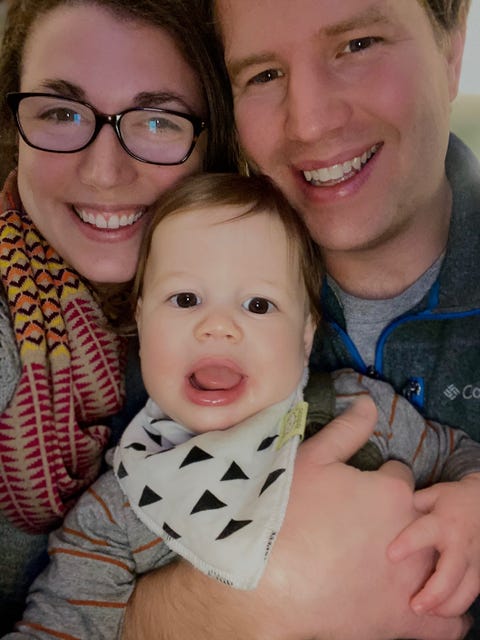
Talia Evans's son turns one this weekend. The library media relations specialist and her husband are choosing to stay home for Thanksgiving, Hanukkah, and Christmas, even though her immediate family lives in the same city. “The thing I keep saying, the thing I keep relying on, is I want my son to have memories that he makes,” she said. “I don’t want to have to tell him about the only Thanksgiving he spent with his family. I want to be able to bring him to a Thanksgiving he will remember for the rest of his life. I don’t think I could reconcile with saying to him, ‘Yeah, we had this Thanksgiving but then everyone got sick,’ or, ‘Yeah, we threw you a birthday party, but then everybody got sick.’ I would rather be part of the solution than part of the problem.”
Here are accounts from other people who, after agonizing, discussing (in some cases over and over), and carefully planning, have decided how they’re going to spend the holidays while also keeping those they love safe.
The non-travelers
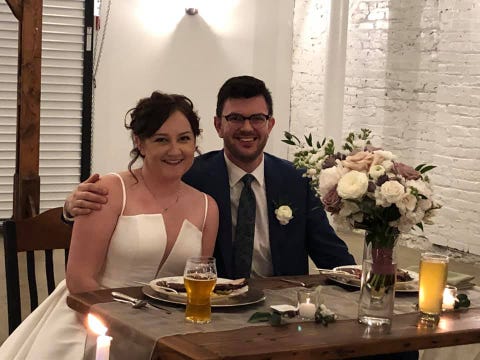
Kate Shelton Ferden and her husband, Kyle, planned to get married near their home in Kansas City, Missouri, in April of this year with a guest list of 250. The wedding was pushed to the end of October, and after a few reconfigurations of the blueprints, the guest count was reduced to only immediate family.
“Having the wedding with just our immediate family was a good way for us to see everybody and then check that box,” Shelton Ferden said. “We got everybody together. We got to spend a really special moment.” The wedding was held in a private back room at Rochester Brewing and Roasting Company, and the couple asked all family in attendance to practice social distancing for two weeks ahead of the event. All staff and photographers at the event wore masks.
Now, with their original plans for an all-inclusive Mexico honeymoon dashed, the newlyweds are planning to drive to Colorado, rent an Airbnb, hike, and cook their very first Thanksgiving dinner together, just for the two of them.
“We’re trying to wrap up some of the sweet honeymoon couple stuff while also staying safe and trying not to hurt anyone’s feelings,” she said.
Shelton Ferden, who works remotely in nursing informatics, hasn't received much pushback for her decision. When she was 6, she was diagnosed with Henoch–Schönlein purpura, a condition that put her in the hospital after she came down with a simple case of strep throat. Although she’s healthy as an adult, she doesn’t like her body’s chances of fighting off COVID-19—or passing it on to anyone else.
The hardest part, she said, is when she sees others on social media going on as if the world isn't going through a major pandemic.
“My husband and I kind of take turns on who needs to be coached through it that day,” she said. “I’ll see something, or I’m missing a party or a best friend of mine is having a party and I can’t go and I’m beside myself about it. And he’s like, ‘You are not crazy. This is why we do it.’ And there will be days when he’s going through that, and I’m like, ‘You are not crazy. This is why we do it.’”
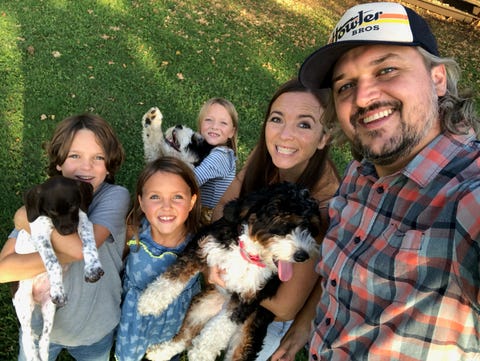
Jennie Whitaker, a mother of three from Austin, Texas who is a co-owner of Seedling Communications, has been home every day since the end of February, when COVID began to close in on the U.S. The holidays will be no exception.
“Our kids are young and they’ll hold on to whatever memories we make,” she said. “We are under the illusion that safety will improve with a new president, and we think 2021 will be a year of change. This year, scientists have worked to make it so that life eventually resumes, so for now, the best thing we can do is stay put while they work.”
As for the month of December? “We’ll blast Christmas music for a month and we’ll capture it all in photos. Being with people virtually is so much easier now than it was when I was young. We can FaceTime far-away family members and text them photos. It’ll be different, but I think it is what you make it. I doubt this is a year anyone will forget, ever.”
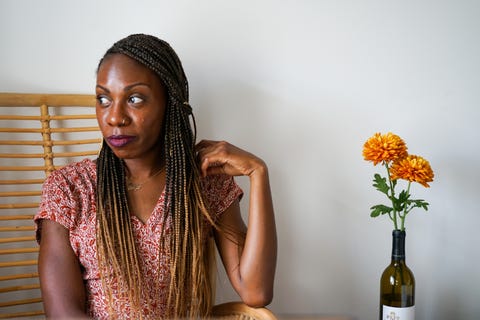
In the middle of the pandemic, writer LySaundra Campbell fulfilled her lifelong dream of moving to New York City. But it’s New York where she’ll be staying for the foreseeable future—travel is not in her plans this holiday season. She takes the subway weekly from her home in Harlem to her partner’s in Brooklyn, a trip which takes her just under an hour. A flight home to see her family in Missouri is more than two hours, and it's not worth the risk for her.
“I've lived in four different cities since 2013 and have since missed four out of seven Thanksgivings with my family in Missouri and two Christmases. Missing both this year isn't a first,” she said. “Honestly, NYC is my dream city, so I’m actually excited to be quarantined here for the holidays of all the cities in this country. Even in the city, I’m being careful with friends given both the pandemic and flu season, so I don’t plan to even have a Friendsgiving.”
The main reason she wants to go home every year, she said, is to eat her mom’s macaroni and cheese. This year, she’s going to have her mom guide her through the steps on FaceTime.
“Being socially distanced in NYC is still an NYC Christmas,” she said. “I may ask my mom for her gumbo recipe and have her coach me through that, too. I think this year for me is more about starting new traditions than it is missing old ones. It's also about starting traditions that don't break the bank.”
The travelers
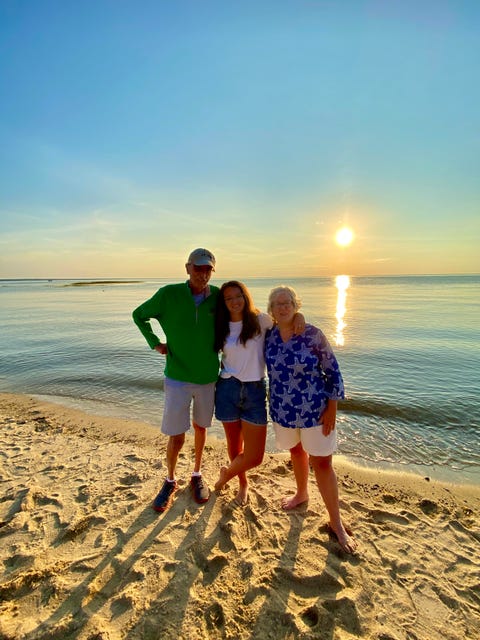
Emily McNutt, an editor who lives in London, is an only child. The U.K. is currently on lockdown, but in December, McNutt plans to go home to see her parents in Saratoga Springs, New York, after quarantining for two weeks at a hotel in town. She carefully chose an on-sale ticket for a British Airways business-class flight. McNutt, whose job requires her to know a lot about travel and flying, is also comforted by what she knows about the mechanisms of planes: “When you consider that the air filtration systems in modern airplanes are more effective than you'll find in many of the buildings we use day-to-day, I felt extremely comfortable.”
“Without flinching, I bought a ticket,” she said. “The comfort of knowing I will have my own extended amount of space in a smaller cabin made me feel more comfortable than if I were to be in economy on an airline that isn't blocking middle seats. Ultimately, being able to know that I would have sufficient space around me, as well as great air circulation, made me feel comfortable in flying home.”
McNutt used her credit card points to pay for her quarantine hotel, something that made it possible for her to make this trip.
“Simply put, if I couldn't quarantine, I wouldn't travel home to my family,” she said. “But knowing that I could secure a safe hotel that is taking COVID precautions, I feel comfortable knowing I'll be able to spend a quarantine alone whilst working during the day in order to keep my family safe.”
Her partner, who is a U.K. citizen, is currently not allowed to travel to the U.S., but they are hoping this changes by the time Christmas rolls around.

When Alexandria Kushner spoke with me, she was on a trip to Tahiti and Bora Bora with her husband and 2-year-old daughter. The family plans to spend Thanksgiving at home in Houston but will visit family in St. Louis early in December and then again at Christmas. All family gatherings will be much smaller than normal, but unlike many families whose work allows them to stay close to home, the Kushners are already accustomed to the demands of COVID-era travel.
Kushner's husband “has become accustomed to traveling during the pandemic and taking the appropriate safety measures to stay safe.” She added, “As for our international trip, we felt safe traveling because we were required to get tested for COVID-19 72 hours before our trip and then self-test with a self test kit provided to us four days into it. We are all comfortable wearing a mask and understand the importance of it.”
Kushner said she and her husband plan to get tested before every trip, social distance, and wear masks when not eating or drinking on the plane. And though she won’t be able to see her parents’ extended families at their holiday get-togethers this year, she’s learned “true friends and family are always there no matter how long you’re apart. Everyone understands what is going on and wants to stay safe.”
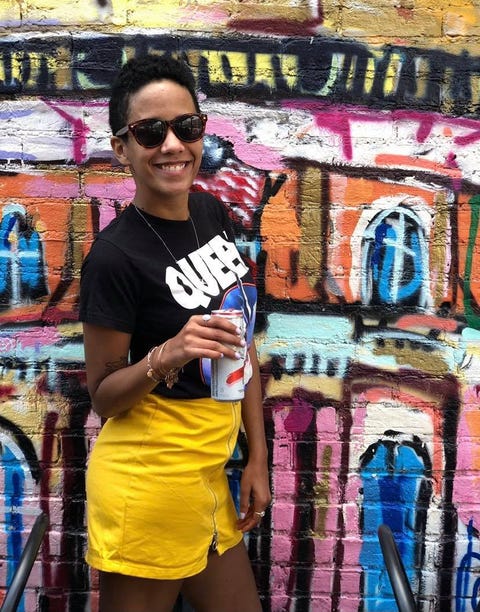
Katie Henry, a restaurant manager in Schaumburg, Illinois, has dealt with everything from her fear of getting COVID at work to customers not wanting to wear masks. Thankfully, her family is just a drive away in Iowa, and she plans to make the journey there for Thanksgiving to spend time with six of her immediate family members. Her sister, who lives nearby in Chicago, will also make the trip, though Henry added she's cautious about traveling home.
Right now, Iowa has seen record hospitalizations for COVID-19. On November 16, Governor Kim Reynolds announced “new steps to fight the virus in order to protect lives, livelihoods, hospital resources and health care workers,” including a mask mandate.
“At the same time my sister and I are going from an area that’s okay to an area that’s not so great, because Kim Reynolds hasn’t been doing anything,” Henry said. “It’s almost like, is it responsible for us to be going, even though we’ve all pretty much been staying at home?”
Henry’s older brother lives in Maine, where the governor mandates visitors and travelers quarantine before and after travel to most states in the U.S., and he will not be traveling to his family’s Thanksgiving. As of right now, Illinois, where Henry and her sisters live, does not require a two-week quarantine after travel. But if this changes, she said this could affect whether she has to stay home, because quarantining two weeks would prove tricky with her job.
“I think because I have to vigorously monitor myself for work anyway, I’m super aware of things I need to watch out for,” she said. “My family members have been really responsible as well. It’s not a safety thing as far as being around them. It’s just the travel; even though I’d only be getting out of the car twice to get gas, you never know.”
Henry’s Christmas plan is to spend the holidays with her family including her brother, but said right now, it’s too hard to tell whether things will pan out the way they’re planned.
“I’m not judging anybody choosing to travel,” Henry said. “I think, at this point, we all need family and we all want to be close, but be smart about it. If you knew for a fact that one person was gonna die because you were in a group of, like, 20 people, is it really worth that big of a risk to you? I just want to know why.”

